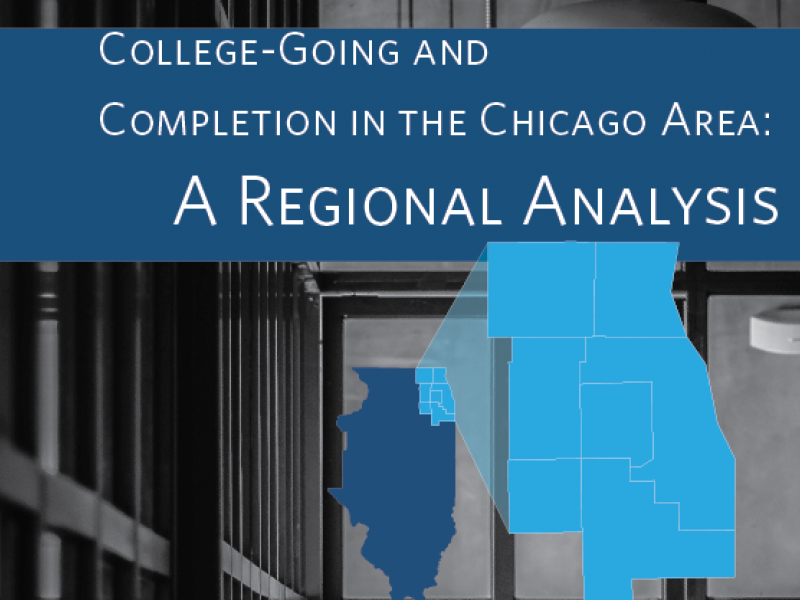PCC Releases New Report | July 2019

College enrollment and completion in the Chicago area are being limited by access and cost issues tied to race, family wealth and income, and the availability of financial aid. PCC Is pleased to release College-Going and Completion in the Chicago Area: A Regional Analysis, a new report that offers an examination of enrollment, attainment, and completion in the seven-county metropolitan Chicago area, using a number of sources including a unique regional analysis of data from financial aid applicants.
Download The ReportAmong the highlights of the report:
• College Access, Enrollment, and Outmigration
Family income, race, first generation college-going status, and ACT scores influence where students enroll. White students are most likely to leave the region and state for college, Latinos, the least likely; in all seven counties, more than 20% of both Black and White FAFSA-filing students enroll out-of-state. However, Latino students have very different college-going patterns; no county has Latino student populations that leave the state at a rate that exceeds 20%. Low-income students scoring in the lower categories on the ACT are least likely to go to four-year colleges, and most likely to go to attend college in Cook County.
The region has large income and wealth disparities by race, but even among children born into a family within the same income range, Whites have a much greater chance of earning a degree than students of color.
• Demand for Colleges and Universities
Amid fiscal uncertainty, rising tuition costs, and increasing outmigration of students, applications at Illinois’ public universities showed troubling trends, growing at only half the rate of the national average between 2011-2016.
• College Completion and Funding
High costs for four-year degrees combine with access issues to influence enrollment and completion rates, with wide disparities by race. Six-year completion rates among low-income Black and Latino FAFSA-filers are 30% and 38%, respectively, compared to 68% for White FAFSA-filers. As of 2016, none of the four universities in the area has demonstrated an ability to graduate more than half of their Black and Latino students.
The report proposes bold equity-focused policy ideas that include: revising college admissions standards to give added weight to GPA scores over ACT tests, which disadvantage low-income students and students of color; restoring full funding of the Monetary Award Program (MAP), which provides grants to low-income students and now covers only two-thirds of the cost of attendance at community colleges and one-third of the cost at public universities; and stopping the flow of state aid to for-profit colleges.
For more information on the report and for press inquiries, please contact:
Jonathan Lopez
jlopez@partnershipfcc.org – (773) 564-3641

